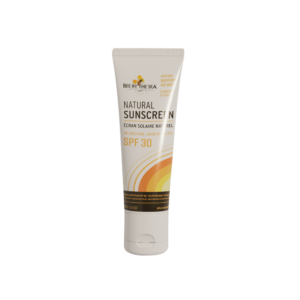In today’s world, where sunscreens often contain numerous chemicals, many individuals are seeking natural alternatives to protect their skin from the sun’s harmful rays. Fortunately, nature provides us with several effective methods to shield our skin without relying on synthetic products. In this article, we will explore natural ways to protect your skin from the sun while avoiding harmful chemicals.

Before delving into natural protection methods, it’s essential to understand how the sun can damage your skin. Sun exposure can lead to various issues, including sunburn, premature aging, and an increased risk of skin cancer. Ultraviolet (UV) radiation from the sun is the primary culprit behind these adverse effects.
The Power of Antioxidants
One effective way to protect your skin from sun damage is by harnessing the power of antioxidants. These compounds help neutralize free radicals produced by UV radiation, reducing oxidative stress and inflammation in the skin. Foods rich in antioxidants, such as berries, leafy greens, and nuts, can help fortify your skin’s natural defense mechanisms against the sun.
Incorporating Sun-Protective Foods
Certain foods contain natural compounds that can enhance your skin’s resilience to UV radiation. Tomatoes, for example, are rich in lycopene, a potent antioxidant that has been shown to protect against sunburn and skin aging. Other foods like carrots, sweet potatoes, and green tea are also known for their sun-protective properties. Including these foods in your diet can provide an added layer of defense against sun damage.
Embracing Sun-Safe Lifestyle Habits
In addition to dietary changes, adopting sun-safe lifestyle habits can further protect your skin from UV damage. Wearing protective clothing, such as wide-brimmed hats and long-sleeved shirts, can shield your skin from direct sun exposure. Seeking shade during peak sun hours, typically between 10 a.m. and 4 p.m., can also help minimize UV exposure and reduce the risk of sunburn.
Harnessing the Power of Natural Oils
Certain plant-based oils possess natural sun-protective properties that can help safeguard your skin from UV damage. Coconut oil, for example, contains medium-chain fatty acids that can provide mild sun protection while moisturizing the skin. Other oils, such as raspberry seed oil and carrot seed oil, contain antioxidants and vitamins that help protect against UV-induced skin damage.
Choose Skin-Friendly Nutrients
Incorporating nutrient-rich foods into your diet can provide your skin with the essential vitamins and minerals it needs to thrive. Foods high in vitamin C, such as citrus fruits and bell peppers, promote collagen production and protect against sun damage. Omega-3 fatty acids found in fatty fish and flaxseeds help maintain the skin’s barrier function, reducing inflammation and improving overall skin health.
Practice Gentle Skincare
A gentle skincare routine can help keep your skin healthy and protected without causing unnecessary damage. Choose skincare products that are free from harsh chemicals and fragrances, as these can irritate the skin and exacerbate sun damage. Opt for gentle cleansers, moisturizers, and sunscreens formulated with natural ingredients to nourish and protect your skin effectively.
Prioritize Sunscreen Protection
While natural methods can provide some degree of sun protection, sunscreen remains a crucial component of any skincare routine. Look for mineral-based sunscreens containing zinc oxide or titanium dioxide, which provide broad-spectrum protection against both UVA and UVB rays without the use of harmful chemicals. Apply sunscreen generously and reapply every two hours, especially when spending extended periods outdoors.
Incorporate Antioxidant-Rich Serums
In addition to sunscreen, incorporating antioxidant-rich serums into your skincare routine can help bolster your skin’s defenses against environmental damage. Vitamin C serums, in particular, are known for their ability to neutralize free radicals and brighten the skin. Apply a few drops of antioxidant serum to clean skin before moisturizing to enhance protection and promote a healthy, radiant complexion.
Conclusion
Achieving naturally healthy and protected skin requires a holistic approach that addresses both internal and external factors. By hydrating your body, nourishing your skin with skin-friendly nutrients, and adopting a gentle skincare routine, you can support your skin’s natural defenses and promote optimal health and vitality. Remember to prioritize sunscreen protection and incorporate antioxidant-rich serums to safeguard your skin against environmental damage and maintain a youthful, radiant complexion. With these simple yet effective strategies, you can enjoy healthy, glowing skin for years to come.
